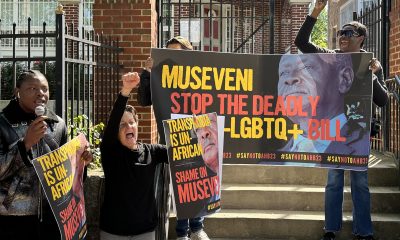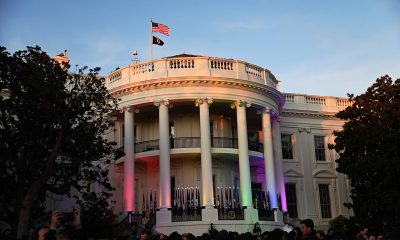Kenya
Man convicted of killing Kenyan activist, sentenced to 50 years in prison
Edwin Chiloba’s partner murdered him in Eldoret on New Year’s Day in 2023
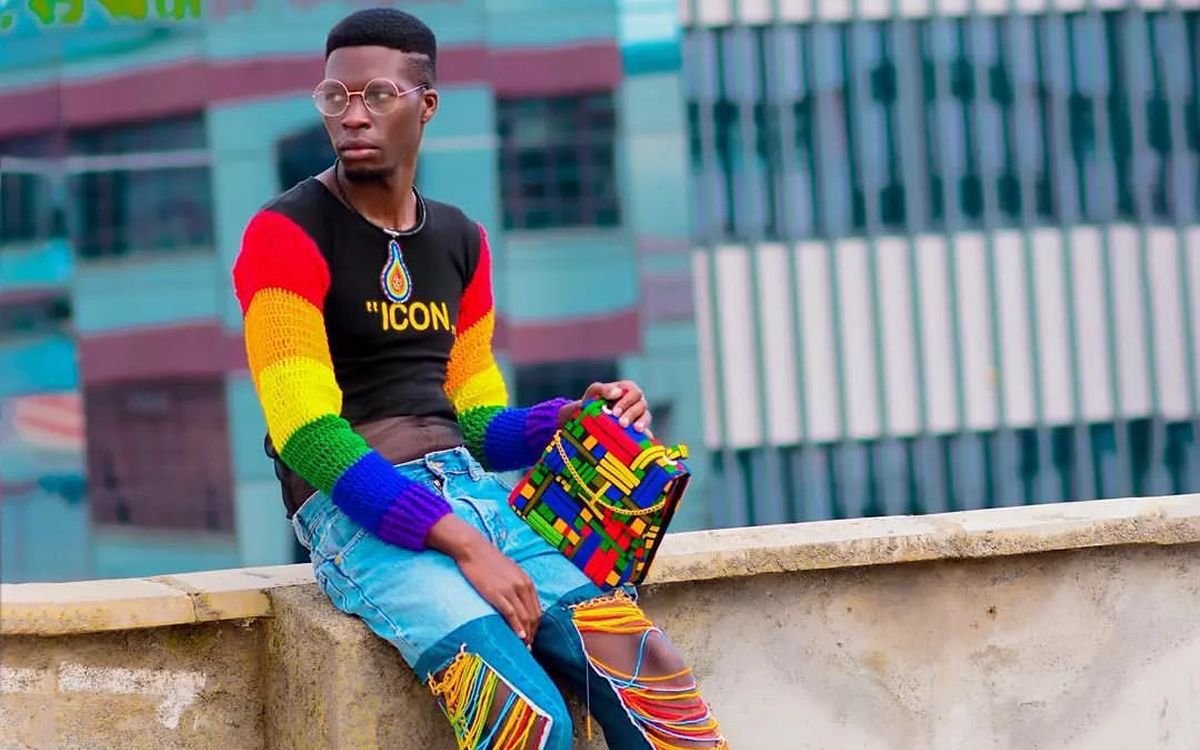
Kenyan queer rights organizations have welcomed the sentencing of a freelance photographer to 50 years in prison for murdering prominent LGBTQ activist and fashion designer Edwin Chiloba nearly two years ago
Justice Reuben Nyakundi on Monday sentenced Jacktone Odhiambo, 25, Chiloba’s partner, after the Eldoret High Court in western Kenya two weeks ago found him guilty of murder.
The 2-year trial, which comprised evidence from 23 witnesses and DNA tests the prosecution presented that placed him at the scene of the crime on New Year’s Day in 2023. Chiloba had disappeared and his body was found stuffed in a metal box that had been dumped along the side of a road.
The court was told that Chiloba and Odhiambo were last seen together at Tamasha Club in Eldoret on the night of Dec. 31, 2022, only for the deceased’s decomposing body to be discovered three days later. His brutal murder sent shockwaves through the LGBTQ community in Kenya and attracted both local and international condemnation and calls for the conviction of perpetrators.
Nyakundi in his sentencing ruling noted the prosecution provided evidence beyond a reasonable doubt and described the brutal murder of Chiloba, 25, as “premeditated, malicious, and aggravated homicide.”
“The footprints of the murder are all traceable to the accused (Odhiambo),” Nyakundi said.
The judge noted Odhiambo showed no respect for the sanctity of life and Chiloba’s brutal killing left a void that cannot be filled.
Odhiambo became the prime suspect after three other accused people were freed due to a lack of evidence linking them to the murder.
Johansen Oduor, the government pathologist who conducted Chiloba’s autopsy, told the court during the trial that the victim had been smothered to death using six pairs of socks stuffed into his mouth and his face was wrapped with a piece of denim.
Despite overwhelming evidence linking Odhiambo to the murder, the court noted the accused did not show any remorse for his actions during the trial and described him as a “vengeful person.” This lack of remorse influenced the severity of his 50-year sentence, even though he fell and wailed after the judge sentenced him.
“The accused deserves the death penalty, which is not implemented in Kenya,” Nyakundi ruled.
Kenya’s Office of the Director of Public Prosecutions acknowledged the judge’s verdict, noting the death sentence “would have been unnecessary” because the country has not executed anyone on death row since 1987. The death penalty, however, has not been abolished from Kenyan criminal laws for offenses like murder, robbery with violence, treason, mutiny, and other crimes.
There have been calls by human rights groups, such as the International Commission for Jurists-Kenya, for Kenya to abolish the death penalty. A bill in parliament would repeal the death penalty.
Additionally, Nyakundi could not sentence Odhiambo to life in prison, which the ODPP also noted as “undesirable” because of the uncertainty surrounding offences that constitute a death sentence.
The National Gay and Lesbian Human Rights Commission in response to Odhiambo’s sentencing said it marks a significant step toward justice for Chiloba, his family, and all LGBTQ people in Kenya, Africa, and around the world.
“This verdict marks a long-awaited moment of accountability, offering a glimmer of justice for Edwin and a reminder that no act of violence against any LGBTQ+ resident of Kenya will go unchallenged or unchecked,” NGLHRC stated.
NGLHRC also remembered Chiloba as a fondly celebrated, vibrant young queer activist, and budding fashion model whose promising future was robbed from him. NGLHRC added his murder also sent a chilling message of fear and injustice to marginalized queer Kenyans.
“We continue to call on the Kenyan government, law enforcement agencies, and the judiciary to strengthen their commitment to addressing violence against LGBTQ+ residents of Kenya as espoused and guided by Resolution 275 of the African Charter on Human and People Rights,” NGLHRC stated.
The Initiative for Equality and Non-Discrimination, a local queer rights group, acknowledged the court’s 50-year sentence for Odhiambo “deemed appropriate for the gravity of the offense.” INEND also applauded NGLHRC and other queer organizations for “pursuing justice for our sibling Chiloba” in the corridors of justice without relenting.
Kenya
Outcome of transgender rights case in Kenya remains uncertain
Country’s attorney general has asked High Court to dismiss lawsuit
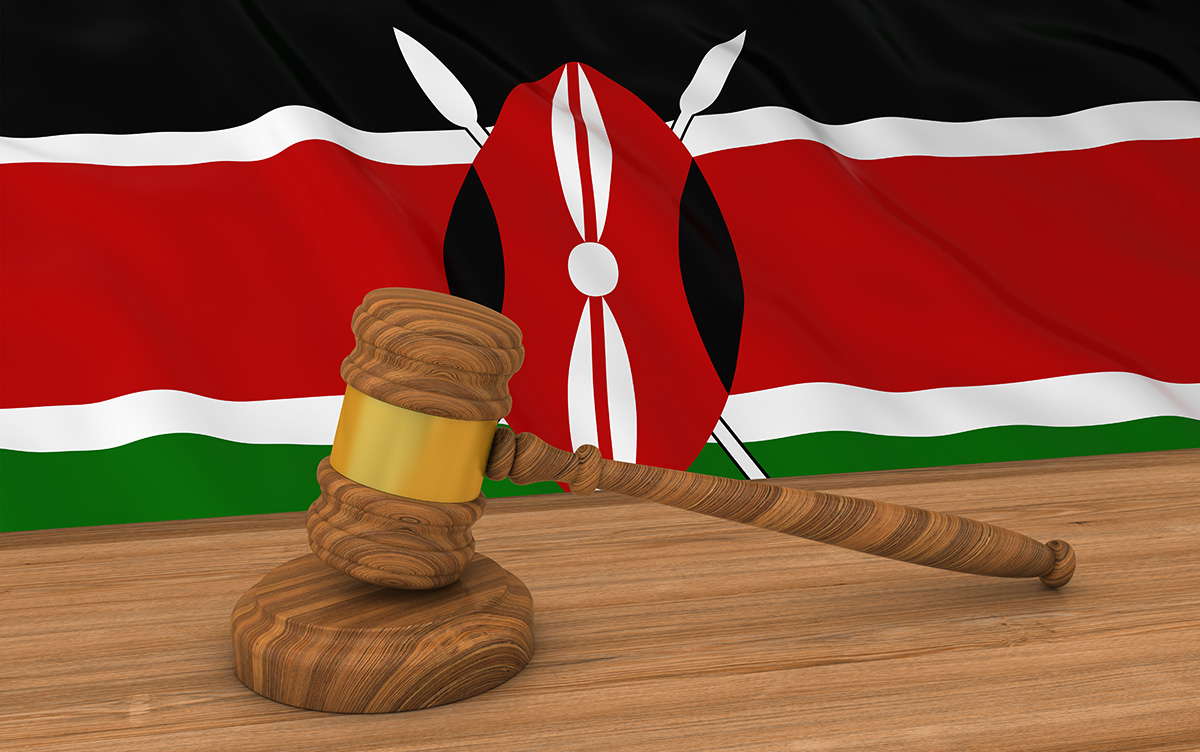
Transgender Kenyans’ efforts to receive birth certificates that reflect their gender identity now hang in the balance, despite several legal victories.
Attorney General Dorcus Oduor has asked the High Court to dismiss a pending case that three trans people have filed. Oduor argues a person is born either “a boy or a girl” and existing laws do not allow for anyone to change their sex in adulthood.
Oduor in her written submission to Justice Bahati Mwamuye also argues gender identity and the government’s issuance of a birth certificate are based on a person’s physical appearance. Her argument, however, exempts intersex people.
The government last month officially recognized intersex people in a Kenya Gazette notice that said they can receive birth certificates with an “I” gender marker. The country’s historic intersex rights law took effect in 2022.
“The existing laws of the land do not contemplate change of gender, and marks of transgender are not a basis for determining one’s gender as either male or female,” Oduor states.
Oduor further maintains that a person’s feeling they are “unwillingly living in a wrong body” cannot justify changing their gender. Oduor maintains a person’s gender is based on fact — not feelings — and the plaintiffs at birth were registered and named based on their gender status.
Audrey Mbugua, Maurene Muia, and Arnest Thaiya are the three trans people suing Oduor, the Registrar of Births and Deaths, the National Registration Bureau, and Immigration Services Director General Evelyn Cheluget in order to receive amended birth certificates.
The plaintiffs argue the current discrepancy in crucial documents — birth certificates, national identification cards, and passports — has denied them opportunities and rights. They disagree with Oduor’s position on determining one’s sex, arguing the process is “not scientific, but subjective.”
“There are no identifiers of sex or definitions of the biological or psychological components of sex,” the plaintiffs argue. “In any event, such biological components cannot be limited to genitalia only, but also chromosomes, gonads, hormones, and the brain.”
They further maintain that trans people cannot be forced to live with names of the wrong gender as adults. Oduor, however, maintains that only mistakes, such as spelling errors or parents in ID documents, can be changed and not a gender marker.
Amka Africa Justice, Jinsiangu (“my gender”) Kenya, and the Kenya Human Rights Commission are among the advocacy groups that have joined the case.
Mbugua, a well-known trans activist, has been pushing for legal rights in the court for more than a decade.
She filed a lawsuit in which she demanded the government identify her as a woman and to be allowed to live as one, not as a male as she was registered at birth. A landmark ruling in 2014 ordered the Kenya National Examinations Council to change Mbugua’s name and replace the gender marker on her academic certificates.
Mbugua also founded Transgender Education and Advocacy, a group with more than 100 members. A long court battle that ultimately proved successful allowed Transgender Education and Advocacy to become the first publicly-funded trans rights organization in Kenya.
Transgender Education and Advocacy’s initiatives include offering legal aid to trans people seeking to change their names, photos, and gender markers in documents, pushing for legal reforms to end discrimination based on gender identity and expression, and providing economic assistance to trans people who want to overcome poverty and sexual exploitation.
Jinsiangu Kenya, established in 2018, also champions equal access to health care and other basic services without discrimination based on gender identity and expression.
A report that Jinsiangu Kenya released in July 2021 notes 63 percent of trans people surveyed did not have ID documents or records with gender markers that coincide with their gender identity. The report also notes 10 percent of trans people surveyed said officials denied them an ID card or passport, and they were unemployed because they did not have the proper documents.
Kenya
Queer Kenyans with HIV/AIDS face double burden of stigma, discrimination
Advocacy group released findings of 2024 report on March 3
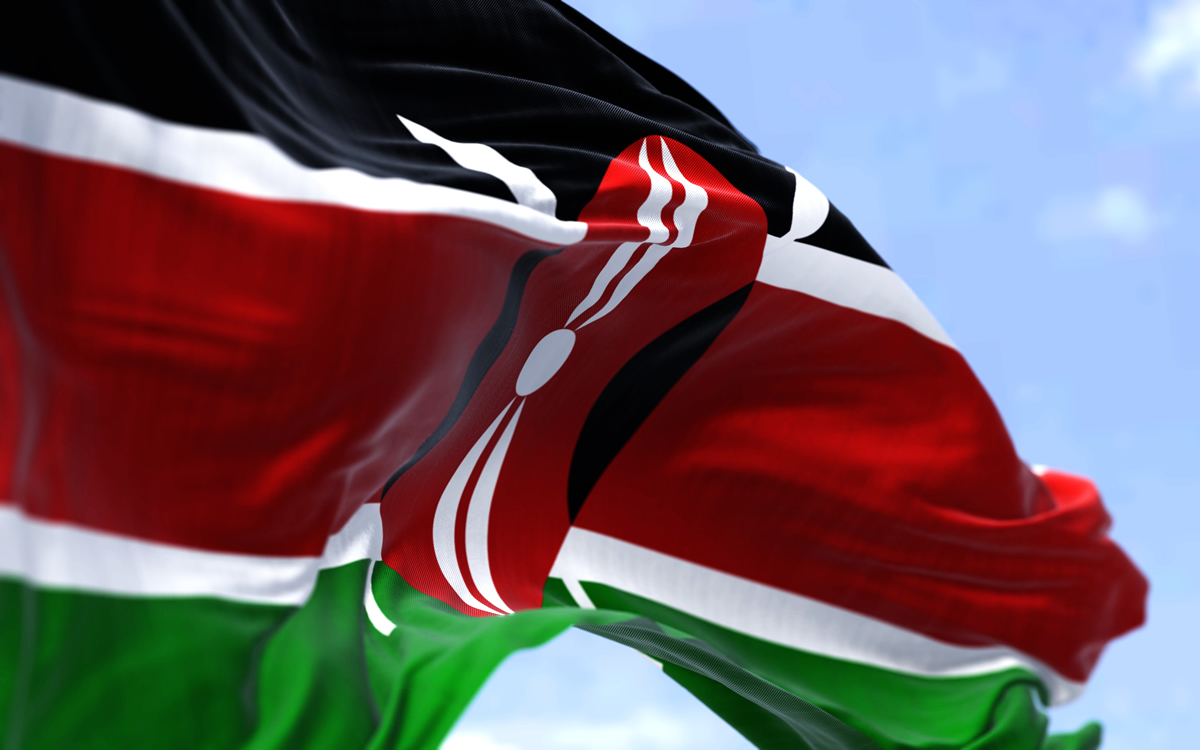
Queer Kenyans living with HIV/AIDS face the double burden of stigma and discrimination due to their LGBTQ identities and HIV status.
The National Empowerment Network of People Living with HIV and AIDS in Kenya (NEPHAK)’s latest report notes this reality, while also revealing queer people stigmatize and discriminate against each other because of their HIV status.
The 2024 report titled “People Living with HIV Stigma Index Assessment,” which NEPHAK released on March 3, notes that although stigma and discrimination vary across different populations in Kenya, queer people are more affected because of the double burdens of LGBTQ identities and HIV-positive status.
“For instance, gays or men who have sex with men (MSM) reported feeling marginalized and devalued, often being labelled as immoral and worthless individuals with a bleak future,” states the 78-page report. “They frequently bore the blame for their HIV-positive status and shunned by family, friends, and neighbors who caution their children against associating with them.”
The NEPHAK survey sampled a total of 1,305 people living with HIV/AIDS across the country, of which 322 or 24.6 percent were key populations that include gay men, transgender people, sex workers, and people who inject drugs. Eighty-five of the 322 people from key populations surveyed were gay men, while 60 were trans.
The survey’s 21-member National Steering Committee of which Women Fighting AIDS in Kenya CEO Dorothy Onyango is chair, includes Solomon Wambua of the Key Populations Consortium, Ludfine Bunde from UNAIDS, and Allan Maleche from KELIN Kenya, a group that champions equal access to healthcare for LGBTQ people and others.
The report’s general findings note that HIV-related stigma and discrimination remain a concern in Kenya, with low HIV disclosure levels within the family. For instance, it reveals 56 percent of respondents confirmed their spouses knew their HIV status, while only 28.7 said their children knew. The survey also notes roughly half of respondents said their partners were HIV positive, whereas 36.5 percent said their partners are negative.
With regards to HIV testing, 62.5 percent of respondents voluntarily chose to get tested while 97.2 percent of respondents said they were on HIV treatment.
The report also states 15.3 percent of respondents had their HIV status revealed to others by healthcare workers without their consent at healthcare facilities. Twenty-nine percent said they were unsure if their medical records are kept confidential.
The survey lists discriminatory remarks from other people at 27.8 percent, discriminatory comments from family members and friends at 24 percent, and verbal harassment at 22 percent as the top three HIV-related stigma and discrimination that people living with the virus face.
“As recounted by people living with HIV who participated in the 2024 Stigma Index study, there is no way the country will deliver on the 95.95.95 HIV Treatment targets and join the world in the path to end AIDS as a public health threat by 2030 if HIV-related stigma and discrimination is not tackled,” Onyango.
She reiterated HIV-related stigma and discrimination continue to hamper HIV prevention efforts, treatment, and care interventions in all of Kenya’s 47 counties and among all populations.
“Stigma experienced by adolescent girls and young women and key populations, whether sex workers, men who have sex with men, transgender persons and people who inject drugs/ people who use drugs, remain high,” Onyango stated.
The stigma breakdown for key populations by the report reveals 48.3 percent of trans people reported experiencing verbal harassment, 31.7 percent reported instances of blackmail, and 28.3 percent admitted they do not seek health care. Another 36.7 percent of respondents said their families discriminate against the because of their gender identity. Of the 60 trans people surveyed, 41, or 68.3 percent, said they belong to a network or support group for trans people.
Almost half, or 48.2 percent, of the 85 gay people surveyed said they experience verbal harassment and 50 percent indicated family and friends discriminate against them. Another 39.5 percent said they are afraid to seek health care; 38.8 percent avoided seeking medical treatment due to concerns about their identity being exposed, while 81.2 percent said they belong to an MSM network.
“Many MSM felt compelled to conceal their identity and remained closeted, further isolating themselves from support networks. These discriminatory attitudes also deterred MSM from seeking essential healthcare services, as they feared judgement and condemnation,” reads the report.
It further notes MSM basic rights are frequently disregarded or denied, making them vulnerable to verbal and physical assaults, insecure, and marginalized. Religious communities also promote stigma that further isolates gay people and contributes to their isolation.
“I have experienced discrimination and stigma in church where the MSM have been branded evil and linked to sin. We have been called purveyors of immorality and disease by pastors,” an unnamed MSM from Mombasa told NEPHAK researchers. “Additionally, there have been instances of discrimination among my MSM friends who are HIV negative, for example, when they refuse to share drinks with those of us who are HIV positive.”
Another MSM living with HIV noted disclosing his status is very difficult and their family and community because of stigma, even from a partner.
“It happened that I went to a certain facility and one of the health workers said to me, the activities you engage in (having sex with fellow men) should be prayed for so that you stop as they are putting you at risk,” they told NEPHAK researchers.
Some MSM living with HIV, however, noted joining support groups after they learned their status has had a positive impact.
“Meeting up with people who have the same status has been comforting,” one MSM told NEPHAK researchers. “This is because we get to share our ideas and experiences, as well as give each other advice on how to live positively.
The report urges relevant organizations and the Key Population Consortium to create awareness campaigns to tackle stigma and discrimination against queer people with HIV/AIDS. It also calls for households, communities, and relevant institutions to become more sensitive to the promotion and protection of the rights of people living with HIV/AIDS and working with religious leaders to address HIV-related stigma and discrimination.
The report further urges relevant health institutions and partner organizations to expand knowledge of the law, privacy and confidentiality among officials, administrators, clergy, and the general public.
Kenya
Kenyan advocacy groups criticize appeals court over delayed decriminalization ruling
Lawsuit has been before Court of Appeal since 2019

Queer Kenyans and advocacy groups have expressed disappointment over the indefinite postponement of a long-awaited decision in their case that seeks to legalize consensual same-sex sexual relations in the country.
Three judges were to hear the landmark case for the LGBTQ community, which has been pending before the Court of Appeal since 2019, on Feb. 5, but the hearing was indefinitely postponed.
One of the judges, Fred Ochieng, unexpectedly withdrew from case “due to personal reasons” and three respondents raised procedural concerns for allegedly not being served properly.
The remaining two judges, Aggrey Muchelule and Joel Ngugi, directed the respondents to be served properly. They also asked Court of Appeal President Daniel Musinga to fully reconstitute the bench and set a new hearing date.
The attorney general and several anti-LGBTQ groups—including the Kenya Christian Professional Forum and the Ummah Foundation, which advocates for Islamic values—are among the respondents. The plaintiffs include the National Gay and Lesbian Human Rights Commission (NGLHRC), the Center for Minority Rights and Strategic Litigation (CMRSL), and GALCK+, which is a coalition of 16 queer rights organizations.
The LGBTQ rights organizations, however, have criticized the court’s directive and have described the new developments in their case as a scheme to continue “delaying justice” after almost six years of waiting.
“This battle is far from over,” GALCK+ stated. “The push to strike down colonial-era laws that criminalize human rights for LGBTQ+ Kenyans continues in our demand for dignity, equality, and justice. We will not back down.”
The plaintiffs first filed the case, which challenges the constitutionality of Sections 162 and 165 of Kenya’s colonial-era penal code that criminalizes “carnal knowledge against the order of nature” and “indecent acts between males” both in public and private with a 14-year jail term, in the High Court in 2015.
The court in its May 2019 ruling declined to decriminalize the sections, which the queer rights organizations argue the State cannot criminalize consensual same-sex sexual relations between adults. The petitioners also argued the Kenyan constitution forbids the State or any person from discriminating against anyone on any ground, including sex.
The court, however, maintained the same-sex sexual acts that Sections 162 and 165 criminalize violate the constitutional provision that protects the family as the “natural and fundamental unit of society.” Kenya’s constitution only recognizes consensual sexual relations between a man and a woman.
Although Muchelule and Ngugi assured the postponed appeal case will be prioritized once the new bench is reconstituted, GALCK+ noted the delay is “frustrating” and vowed not to be silenced.
“This is about our lives, our rights, and our freedom,” GALCK+ affirmed. “We are here. We are watching. And we will not stop fighting until love is no longer criminalized. We will continue monitoring the case and standing in solidarity with the queer community.”
GALCK+ further stated it will continue advocacy and engage relevant stakeholders in championing a future that does not criminalize consensual same-sex relations.
NGLHRC also lamented the postponement, and noted that abolishing the “outdated, discriminatory anti-homosexuality laws” is about upholding fundamental human rights and the dignity of every person, regardless of their sexual orientation, gender identity or expression, or characteristics.
“As we anticipate the new hearing date, we reaffirm our commitment to challenging these unjust laws and continue to collaborate with like-minded and allied partners toward creating a society that upholds the rights and dignity of every individual,” NGLHRC said in a statement.
CMRSL, which defends in court queer people who authorities have accused of engaging in homosexuality, noted the police continue to target LGBTQ individuals because the penal code sections remain in place.
“These provisions have historically been used by the State to target and harass LGBTQ+ persons based on their gender identity and sexual orientation. These fuel discrimination, marginalization, and persecution,” CMRSL Legal Manager Michael Kioko said.
He reiterated the anti-homosexuality provisions have denied queer people the right to privacy and human dignity, noting authorities have used forced genital examinations and HIV tests as evidence against them.
“These practices infringe upon constitutionally and internationally guaranteed rights, including the right to human dignity, privacy, and freedom from cruel, inhuman, or degrading treatment,” Kioko stated.
-

 District of Columbia14 hours ago
District of Columbia14 hours agoWorldPride organizers may warn trans people from abroad not to attend event
-
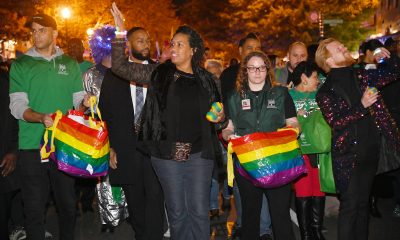
 District of Columbia3 days ago
District of Columbia3 days agoLocal officials weighing impact of Trump’s D.C. executive order
-

 South Africa4 days ago
South Africa4 days agoUS-funded South African LGBTQ groups curtail operations
-

 Maryland2 days ago
Maryland2 days agoTrans Maryland founder: Trans people ‘are afraid’

